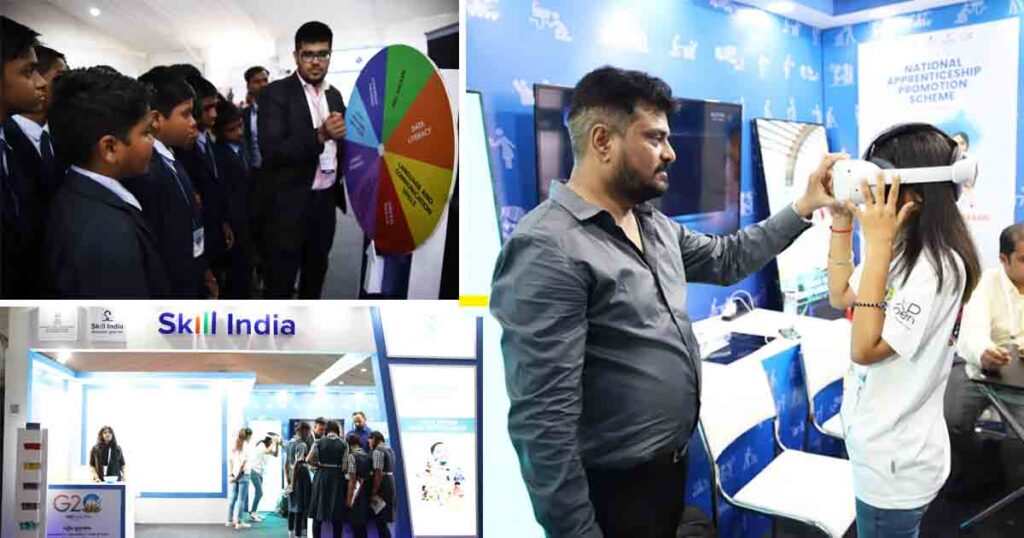G20 in Pune : NSDC exhibits significant role in developing foundational skills at an exhibition

National Skill Development Corporation (NSDC), strategic implementation and knowledge partner for Skill India Mission and a key exhibitor at the G20 4th Education Working Group (EdWG) meeting, showcase the significant role it’s playing in promoting and developing foundational skills. A multimedia exhibition is also being organized from June 17- 22, 2023 (except on June 19, 2023), on foundational literacy and numeracy as part of the EdWG meeting to be held in Pune on the theme Foundational Skills in the context of Blended Learning.
Foundational Skills refer to the core competencies and abilities that are essential for an individual to thrive in a rapidly changing professional landscape. These skills are considered fundamental and provide a strong basis which act as a bedrock on which advanced competencies are built serving as a launchpad for success in diverse fields. As technological advancements are reshaping the world of work, foundational skills become even more crucial to navigate the changing dynamics of work. By ‘learning how to learn’, students can adapt to evolving technologies and working conditions.
Expressing his thoughts on the importance of foundational literacy, Mr. Ved Mani Tiwari, CEO NSDC and MD, NSDC International stated, “Foundational literacy and numeracy form the bedrock of every skill. It provides the robust base upon which we build a skyscraper of skills. Recognizing the importance of FLN in today’s rapidly evolving workplace, we at NSDC have incorporated it into the core of our skilling initiatives. This blend of foundational and future skills empowers India’s workforce to navigate and thrive in the global market with confidence and versatility.”
NSDC as an organization is working towards bridging the skill gap between the industry requirements and skills of the workforce. It has played a significant role in promoting and developing foundational skills in India’s potential workforce. NSDC’s primary focus is on skill development across various sectors.
Vocational education should be viewed as a key element to complement foundational training. By weaving the foundational skills into the fabric of skill development programs, NSDC not only enhances the learning experience but also unlocks a world of opportunities for India’s youth. This integration empowers individuals to effectively communicate, comprehend complex information, and solve real world problems, thereby fostering a resilient and adaptable workforce ready to meet the ever-changing demands of the world of work.
In the context of such changes, “frontloading” skills on to populations through early-life education with a single lifetime qualification may no longer be sufficient to meet the skill needs of the future. Instead, training systems will need to be flexible and adaptive to equip individuals with the capabilities to learn continuously over their life course. Such systems must begin by delivering the foundational skills that will prepare the youth to successfully face emergent (social, environmental, and technological) changes in the labor market, but then also facilitate dynamic learning over the life cycle to ensure that people continue to keep pace with factors of change. Such integrated systems must serve as a robust base to facilitate career management, articulate training and recruiting needs, and empower career transitions.
In today’s world of globalization, blended learning has gained prominence as an effective educational model. Jobs and the labor market are changing fast, and we need to keep track of the trends and need to adopt different approaches for skill anticipation. Blended learning provides various approaches through which foundational skills can be imparted effectively. It provides, personalized learning pathways to cater to individual learner’s need, differentiated instructions enabling teachers to provide varied levels of support to students, self-paced learning allowing students to take ownership of their educational journey and continuous progress monitoring providing real-time data about students which helps the educators to apply data driven approaches to intervene promptly.










